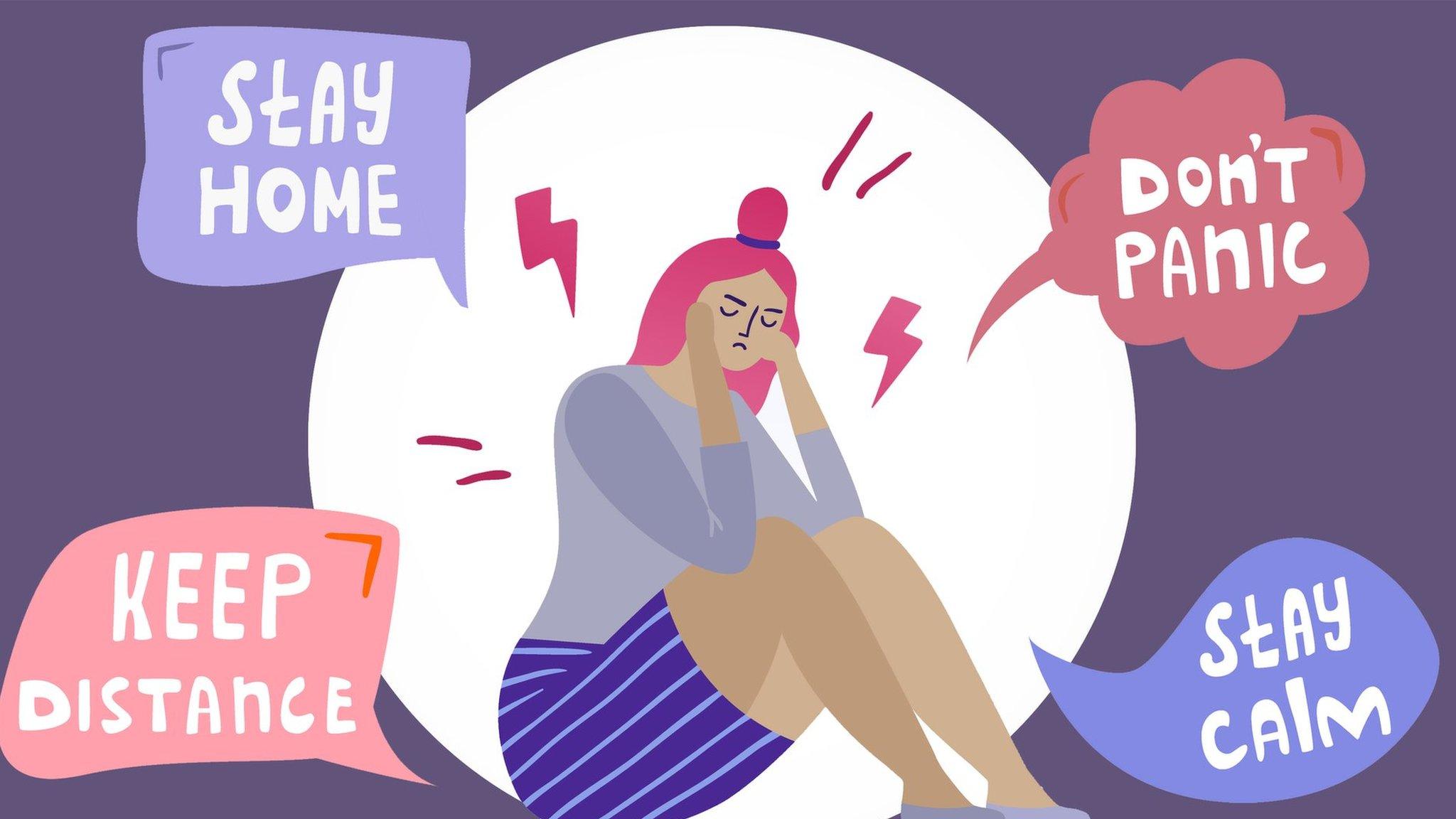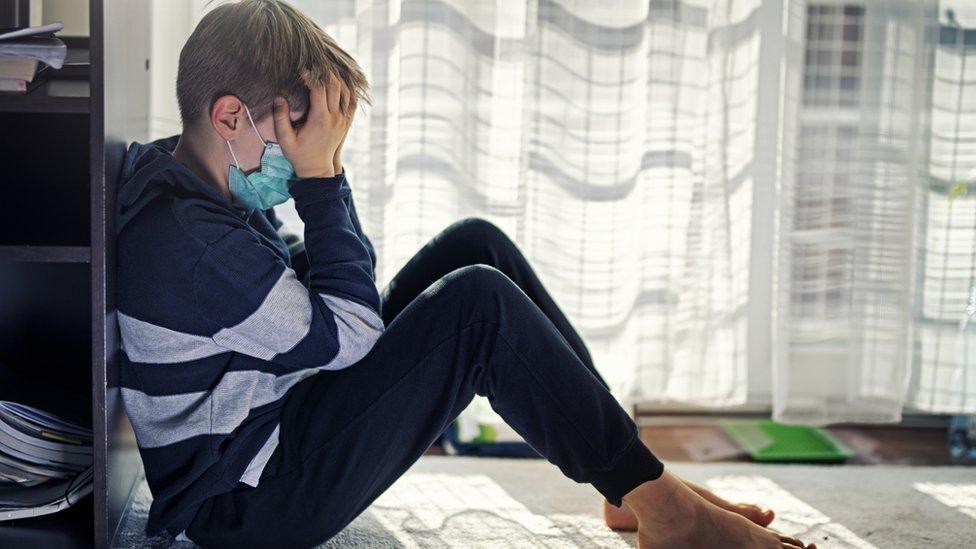Coronavirus in Wales: Young people talk about family life under lockdown
- Published

Alfie Richards says the pandemic has allowed him to spend more time with his family
Pulling up a chair next to his mum, 17-year-old Alfie Richards picks up his knife and fork and tucks into his tea.
It seems like an everyday scene in homes across the country. But, as parents of teenagers know, you're lucky to get five minutes of small talk in before their eyes shift back to their phone screen and they dart up to their room or out with their mates.
Lockdown meant teenagers like Alfie were forced to put their social lives on hold and spend all their time at home with their parents.
It's taken its toll on their mental health - but some young people have also experienced a positive boost from lockdown, building closer family relationships and getting a chance to slow down, escape school and work pressures and evaluate what they want from life.
"At the start it was a bit shocking not being able to do anything," says Alfie, who lives with his mother in Wrexham and works as a painter and decorator.
"We've been enjoying it during lockdown because we've spent time sitting in the garden or having dinner together - we've never done that before really - and just sat and had a chat.
"Last night we watched a film together. Usually you come home from work, grab food, go on your phone, then go upstairs."
'I've had time to focus on myself during the pandemic'
Caitlyn and her nan Kath have been enjoying quality time
Caitlyn Morgan from Fochriw in the Rhymney Valley has also been enjoying quality family time, after moving in with her 72-year-old grandmother Kath, who has lung disease, to keep her company during lockdown.
"It's brought us closer. We've spent nice, quality time together and had some good laughs. Older people have amazing stories," says 20-year-old Caitlyn, who is currently unemployed after losing a potential new job due to the pandemic.
"Lockdown has helped me to sort out my priorities. I've been able to explore hobbies that I'd wanted to try. I'm doing things I wouldn't usually have the time to be doing - like customising broken dolls. I started in March - it's a bit creepy really, like a horror film! I do have some headless ones and there are currently two dolls' heads on my dressing table!
"I'm usually trying to do courses and things to improve my CV. But during lockdown I've had more time to focus on myself."
'It's changed me'
She added she's also found the confidence to cook a meal for the first time and "gained independence".
"Helping my nan showed me there are things I can do around the house and I can actually be an adult. I'm 20 years old and can't cook - I even set fire to a microwaveable burger once. But now I can cook a meal for my nan."
Lockdown has had an impact on many young people's mental health. But Caitlyn says it has actually improved her anxiety and made her better-equipped to face life's challenges.
"I think I have anxiety anyway and that was skyrocketing at the start of lockdown.
"It's changed me. I have more idea of my priorities and my ability to get out the other side.
"I don't want to be as timid as I was before. I wanted to fit in all the time and overcompensated. Now I just want to be myself.
"I've got my mind in the right place for me to move forward."

A SIMPLE GUIDE: How do I protect myself?
AVOIDING CONTACT: The rules on self-isolation and exercise
HOPE AND LOSS: Your coronavirus stories

'Calmer and happier'
Kate Griffiths from Cardiff says her sons benefited from lockdown in very different ways.
Her youngest son Dan is 17 and has severe autism. Since lockdown, Kate says he has become calmer due to the reduced number of places he has to visit and the lower number of people he has encountered.
"For him things changed dramatically because school stopped. There was less rushing around, he wasn't in busy situations or getting on school transport.
"It's slowed right down and he has been a lot more relaxed, calmer and happier."
Her eldest son Tom, 19, is a carer and found that people now view his role differently due to the Covid-19 pandemic.
"People's view of carers became quite different - care work became a significant job to be in," she said.
"It was good for his confidence and boosted his self-esteem, which is important for a young man of that age."
- Published15 May 2020

- Published24 July 2020
